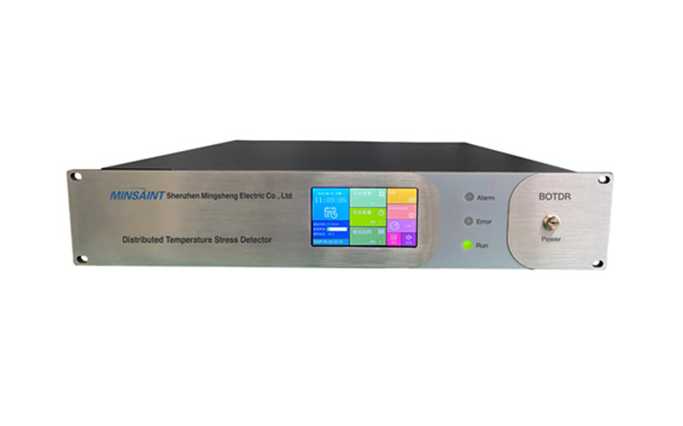In the industrial field, wire-tube condensers are an important heat exchange equipment, and their quality is directly related to the operating efficiency and stability of the entire system. Therefore, it is particularly important to master the method of judging the quality of wire-tube condensers. This article will help readers understand how to evaluate the quality of wire-tube condensers from multiple angles through a series of detailed analysis and discussions.
First, we need to understand how wire-tube condensers work. Wire-tube condensers convert gaseous refrigerant into a liquid state through internal fluid tubes, while releasing heat to the surrounding environment. The efficiency and safety of this process depend on the structural design and material quality of the wire-tube condensers.
1. Materials and manufacturing processes
The quality of wire-tube condensers is first reflected in the materials they use. High-quality wire-tube condensers are usually made of corrosion-resistant, high-temperature-resistant metal materials, such as stainless steel or specific alloys. These materials ensure that corrosion or deformation does not occur during long-term operation, thereby extending the service life of the equipment. For example, 304 stainless steel is often used to manufacture wire-tube condensers due to its good corrosion resistance and formability.
The manufacturing process is also a key factor in judging quality. Exquisite processing technology can ensure the precise dimensions and smooth surface of the pipe, reducing resistance and risk of leakage during fluid flow. For example, the use of high-precision CNC machine tool processing can ensure the sealing of pipeline interfaces and the stability of the overall structure.

2. Design parameters
Design parameters for wire-tube condensers include pipe diameter, length, wall thickness, and overall arrangement. These parameters directly affect the heat transfer efficiency of the condenser and the flow characteristics of the fluid. For example, the diameter of the pipe will affect the amount of refrigerant flowing per unit time, while the length of the pipe is related to the adequacy of heat exchange.
3. Performance test
Performance testing is an important part of judging the quality of wire-tube condensers. By performing pressure tests, leak tests, and thermal efficiency tests on the condenser, you can gain a visual understanding of its performance. For example, by observing whether there is gas leakage under standard pressure, the sealing performance can be judged; by measuring the temperature difference between the input and output, the heat exchange efficiency can be calculated.
4. Actual operating performance
In addition to theoretical testing, the performance of wire-tube condensers in actual operation is also an important basis for judging their quality. A high-quality wire-tube condenser should be able to maintain stable performance during continuous operation without problems such as excessive temperature or abnormal pressure. In addition, noise level is also an aspect to consider, and high-quality wire-tube condensers should maintain low noise levels during operation.
5. Maintenance and service
The ease and cost of maintenance of wire-tube condensers are also one of the criteria for evaluating their quality. Easy-to-clean and maintain design reduces downtime and maintenance costs. At the same time, the after-sales service provided by the manufacturer also reflects its confidence in product quality. A responsible manufacturer will provide detailed usage instructions and maintenance guides, as well as timely technical support and services.
To sum up, judging the quality of wire-tube condensers requires a comprehensive evaluation from multiple dimensions such as materials and manufacturing processes, design parameters, performance testing, actual operating performance, maintenance and service, user feedback and market reputation. Every detail may affect the final use effect, so when choosing wire-tube condensers, you should carefully consider it to ensure that you choose a high-quality, high-efficiency, and high-reliability product.
Optimized design: key steps to create an efficient wire-tube condenser
Wire-tube condenser safety and reliability analysis: influencing factors and improvement strategies
The development history of wire-tube condenser
An in-depth discussion on the heat exchange efficiency of wire-tube condenser
wire-tube condenser installation and debugging guide
Corrosion resistance, selection and application of wire-tube condenser materials
Impact and application analysis of wire-tube condenser on energy efficiency
How to clean and maintain wire-tube condenser?
How to choose refrigerant for wire-tube condenser
Analysis of the role and importance of wire-tube condensers in refrigeration system
Heat dissipation performance analysis and optimization strategies of wire-tube condensers
The role of wire-tube condensers in air conditioning systems
Heat conduction characteristics of wire-tube condensers
How to effectively prevent corrosion of wire-tube condensers
Application of wire-tube condensers in environmental protection
Will extreme environments affect the performance of line tube condensers?
The role of wire-tube condensers in refrigerators
mia
Lon@ningbo-senjun.com




